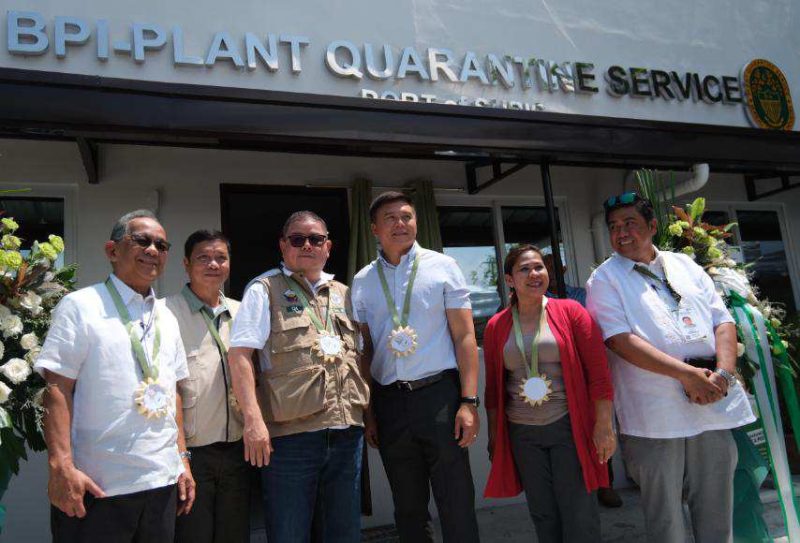-
The House of Representatives Committee on Trade and Industry approved a measure that will create the national food hub at the Clark Civil Aviation Complex
-
House Bill No. 10678, which will be known as The Clark National Food Hub Act, was unanimously approved by the Committee on August 20
-
The bill will be referred to the Committee on Appropriations and the Committee on Ways and Means for the funding and tax incentives provisions
The House of Representatives Committee on Trade and Industry has approved a measure that will create the national food hub at the Clark Civil Aviation Complex (CCAC) aimed to centralize and modernize the distribution, storage, and processing of agricultural products in the country.
House Bill (HB) No. 10678, which will be known as The Clark National Food Hub Act, was unanimously approved by the Committee chaired by Iloilo 4th district representative Ferjenel Biron on August 20.
The bill, authored by Cagayan de Oro 2nd district representative Rufus Rodriguez, Bataan 3rd district representative Maria Angela Garcia, and Leyte 3rd district representative Anna Victoria Veloso-Tuazon, will be referred to the Committee on Appropriations and the Committee on Ways and Means for the funding and tax incentives provisions.
Arrey Perez, president and chief executive officer of Clark International Airport Corp. (CIAC), said the committee approval is “a patriotic act that will benefit the country’s agriculture sector and the nation.”
CIAC operates CCAC and is one of the collaborators for the food hub project along with the Department of Trade and Industry and Department of Agriculture.
“As soon as this proposal becomes a law, it will bolster agro-logistics as support to our country’s robust agricultural production,” Perez said.
He further explained: “It will also enhance freight transport services, mobility, and access to key economic zones, toward seamless logistics and efficient supply chains. This means higher farm productivity and sustained agribusiness, and higher income for Filipino farmers.”
Perez noted the project will simultaneously address food security and logistics cost concerns by providing predictable, sustainable, and modern solutions for the demand and distribution of agricultural produce of Luzon to both domestic and foreign markets.
Rodriguez, for his part, said there is an urgent need to address the country’s food security issues through a systematic streamlining of food distribution process.
“Establishing a national food hub in Clark will play a crucial role in shortening the supply chain from producer to consumer (and) will not only standardized logistics but also ensure the efficient movement of food products, thereby enhancing overall efficiency. The initiative is further reinforced by the Philippines’ development plan which includes food security measures (and so) the Clark national food hub is designed to achieve these objectives for the Filipino people,” Rodriguez said.
READ: First phase of Clark food hub ready by 2027
The P8.5 billion 64-hectare agriculture trading hub inside the CCAC will support the national government’s vision to make the Philippines a leading agricultural resource hub in the region and the world. The planned food hub is designed to be the Philippines’ premium wholesale market and distribution hub for quality food produce. The food hub project actualizes the first strategy under the DTI’s three-year food logistics action agenda, which is to revolutionize the food distribution network in the country from farm to fork.
The food hub features key components, including state-of-the-art food storage warehouses, cold storage-facilities, processing units, administrative offices, logistics infrastructure, and wholesale and retail market spaces.
The project will serve as a central hub for high-quality food products, catering to organized producers, collectors, retailers, supermarkets, suppliers, and regional producers. It offers an adapted consumption wholesale market to meet long-term fresh food requirements, facilitates the export of Filipino agricultural products, and includes an ambitious warehouse program for various food companies.









